50+ Money-Saving Tips for New Zealand
New Zealand is a very expensive country. So expensive that I was afraid to visit for several years, despite my burning desire to see the acclaimed country. Accommodation, food, beverages, drinking, public transportation, petrol, personal needs, and even toiletries are all very costly.
Yet I was able to travel around NZ for an entire month this year for a grand total of only $282.50 NZ / $235 US! ! During my second month, I loosened up and doubled my expenses to a grand total of $528.25 NZ / $440 US . That’s still as cheap as traveling through SE Asia.
For full details on my monthly expenses, read about month 1 here and month 2 here. You can also read my strategy for traveling around New Zealand on a budget.
As a result of my low costs in NZ I have just proved to myself, and anyone else interested, that it is indeed possible to travel cheaply even in such an expensive country. You just need to know how to cut costs.
In addition to my own cost-cutting strategy, during my 3-month trip around the North Island I took careful notes of prices and various ways to save money and keep costs to a minimum.
Here’s the result – 50+ tips for traveling around New Zealand on a low budget:
General
1. HelpX and WWOOF
These two online organizations have hosts all over the world who are looking for volunteers to help out at their farms, homes or small businesses. Volunteers usually work about 4 hours per day in exchange for room and food. In New Zealand, over 1000 hosts are listed on both sites. Other similar sites with NZ hosts also exist.
In my case, doing a bunch of HelpX gigs is the main reason my expenses in NZ were so incredibly low: no food or accommodation costs!
2. Buy everything you need before you arrive
Everything in New Zealand is expensive. Especially astoundingly expensive are toiletries and other personal items. For instance, a small deodorant costs $8-16! You’ll save yourself a lot of money if you buy everything you need for your time in NZ before you arrive.
3. Travel off-peak
Traveling off-peak is a great way to decrease your expenses in any country. Tourists are fewer so many hotels, backpackers, tours and destinations offer lower rates. You’ll also have much less crowding, noise and chaos.
You might even get some nights in a dorm room with no roommates! A whole room for the cost of a bed. I was that lucky at two different hostels during my trip.
4. Attractions and Outdoor Adventures are expensive
New Zealand is renowned for its outdoor adrenaline adventures like bungee jumping, sky diving, helicopter rides, hot air ballooning and so on. They are all extremely expensive. So are many of NZ’s other famous attractions, such as geothermal regions (Think Yellowstone National Park stuff) Maori cultural shows/meals and museums.
If you’re traveling around NZ on a tight budget but want to partake in such adventures and attractions, you’ll have to carefully weigh out the cost vs the adventure.
Perhaps you could do some of those adrenaline thrills in other countries where they’re less expensive? Perhaps in NZ you could participate in free outdoor adventures like hiking, mountain climbing, soaking in hot springs and visiting glaciers instead?
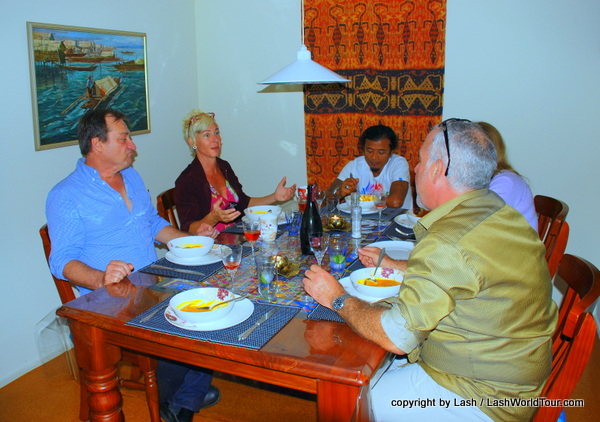 Eating & Beverages
Eating & Beverages
5. HelpX and WWOOF
By volunteering at people’s homes and farms, you can completely nix your food expenses – you’ll be working for your meals instead. It’s a great way to reduce your travel costs as well as meet local people and have a lot of fun.
6. Buy groceries and cook
If you’re not working off your meals by volunteering, then buying groceries and cooking for yourself is the cheapest way to eat in New Zealand. Restaurants are quite expensive, with the cheapest meals (at fast food type places) at $8-10.
In comparison, if you buy groceries and cook, you can eat for $4-5 per meal if you eat healthy, good-quality food like I do. You can eat even cheaper if you want to live on noodles, white bread & peanut butter, and that sort of thing
Hostels, motels and some campgrounds have fully-equipped kitchens for travelers to use.
7. Produce shops
Almost every town and city in NZ has a fresh produce store or two – separate from the groceries and supermarkets – where you can buy fruits and vegetables at much lower prices than in the supermarkets.
Man, I wish I’d known that earlier! Here are some price differences I noted when I finally visited a produce store near the end of my trip: apples $1.50 vs $4.50 / brocoli $0.69 vs $2.50 Yeah, big difference!
8. Markets
Most towns and cities also have weekly fresh markets, usually on Saturdays or Sundays. Like produce shops, market stalls sell fresh produce from local growers, usually at lower prices than the supermarkets.
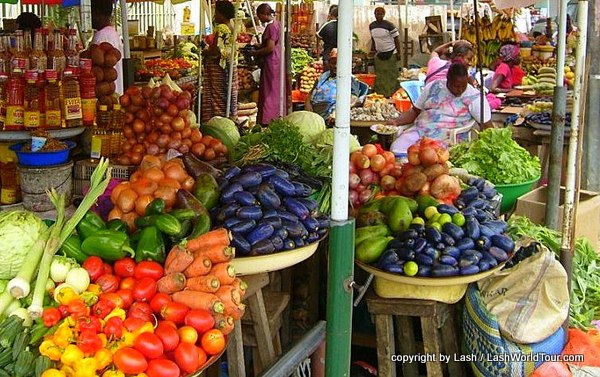 9. Cheapest ‘restaurants’ are kebabs, Subway, Pizza, Fast Food, food courts
9. Cheapest ‘restaurants’ are kebabs, Subway, Pizza, Fast Food, food courts
If you have to eat out, then the cheapest options are the big international food chains like Subway and fast food like Burger King. Kebab shops and food courts selling various ethnic foods are also about the same prices.
At any of these places you can get a meal for $6-10. That’s still not cheap compared to many other countries, but that’s the best you can do in NZ! Restaurant meals cost over $10 – usually about $15-30.
10. early Bird specials at restaurants (usually before 7 pm)
Most New Zealand-ers seem to eat dinner quite late – after 7, but often not until 8 or 9 pm! So if you eat before 7 pm, you might find early bird specials at various restaurants.
11. buy tea and/or coffee at groceries and make yourself
You’ll find cafes and coffee shops all over NZ. Like everythign else, they are expensive. The going rate for a coffee is $4-4.50. Teas are about the same price. So you can save yourself heaps of money by buying those drinks in the supermarket and making them yourself. You’ll only need a method to heat water.
12. Tap water is safe and free everywhere
One bit of good news for budget travelers in NZ is that you never have to pay for water! Tap water is perfectly safe everywhere int eh country. So get yourself a water bottle and simply refill it wherever you are. Water fountains are located in parks, museums and many other public places. You can also refill from the tap in bathrooms, if need be.
13. Skip canned sodas & drinks
…on the other hand, canned drinks are absolutely outrageous in price! I’m talking like $3-4 for one can of Coke! Ditto for any other canned/bottled drinks like energy drinks, sports drinks, canned tea. I don’t know about you, but I would never pay $3 for one can of Coke! I’ll just do without and drink water, thank you very much.
14. Big bottles of soda are cheaper than cans/individual drinks
However, if you really ‘need’ to have that Coke or Gatorade, then oddly enough, the large bottles are generally much cheaper than the individual cans! A 1.5 Liter of Coke is often on sale for $2-2.50. That makes it actually a reasonable price.
15. Supermarket discount member cards – Countdown, New World, Pak n Save
These are the 3 major supermarket chains in NZ. They have membership cards that will give you discounts on your purchases. As a traveler without a permanent address in NZ, you might not be able to get a full membership, but if you apply, you might be able to get a temporary card that will last a month or three
Drinking
16. Wine
If you’re going to drink in NZ, then wine is probably your cheapest option. A huge variety of wines are produced in NZ, so they are a domestic product rather than imported.
17. Skip cocktails in NZ!
In direct contrast, cocktails are outrageously priced in NZ. The going rate is $17-20 per cocktail. So this is a great country in which to skip cocktails all together.
18. Happy Hours
That having been said, you might get much better deals on cocktails and other drinks during happy hours. I’ve heard of cocktails costing 2 for $14. That’s still fairly expensive, but it’s a lot cheaper than their usual prices!
19. Hostel bars specials
Hostel bars tend to have daily specials that are quite a good deal. They often serve mixers and beer on tap for just $4, which isn’t too bad. If you’re staying at their hostel, you might also get a free drink voucher for various reasons, like a room upgrade.
20. See my post: Guide to Drinking Cocktails on the Road
21. Liquor stores
A great alternative to drinking at bars and pubs is to buy your alcohol at a liquor store instead. You’ll definitely get much better prices that way.
Accommodation
22. HelpX And WWOOF
By doing HelpX or WWOOF gigs, you can completely cut your accommodation expenses. Plus you get a nice, cozy room and bed all to yourself. That sure beats a dorm bed!
23. Hostels – book through Naked Bus
Hostel beds generally cost $25-35 per bed per night everywhere in NZ. That’s about on par with hostel bed costs in Europe, UK and Australia.
But here’s a great secret I love to share: You can get those same hostel beds for just $15 by booking them online at NakedBus! I can’t tell you how many people I’ve met in my hostel rooms who paid full price for their bed while I paid only $15. For an identical bed in the same room. Go book them at NakedBus!
24. Couples and groups may have a better rate for room rather than hostel beds
With dorm beds at $25-35, if you’re traveling with a friend, partner or group of friends, it could cost you the same or less for your own private room. Check around at nearby hotels & motels for room prices. Motels in New Zealand have fully-equipped kitchens, so you could also save money by buying groceries and cooking.
Camping
25. Avoid paid campsites
Paid campsites in New Zealand are outrageously expensive. They cost as much or more than a bed in a dorm! The going rates at places I checked were $14-20 PER PERSON! Not per campsite. And that was the off-peak season price. So 2 people camping would cost $28-40. WTF?!
26. Stay at free camping sites
…Which is why I recommend staying at the many free campsites around the country. Many of them are located at absolutely stunning spots such as beside Lake Taupo or along the beautiful Waikato River.
Many of them have nearby public toilets and/or showers as well. Though some don’t even have toilets, so you might have to rough it or find a toilet before you set up camp.
27. Ask residents if you can park in their driveway
Here’s a nifty tip I got from a young American woman driving around NZ on her own. She said that come evening, she just stops at a local home wherever she happens to be, knocks on the door and asks if she can park overnight in their driveway.
She said that half the people actually invite her into their home, cook her a meal and let her shower, then give her a room or a couch to sleep on! The other half agree to let her park in their drive. That way she can avoid illegal parking fees and any dangers.
Buying supplies and goods
28. Buy everything before you get to NZ
see above
29. The Warehouse
A chain store called Warehouse is the NZ equivalent of Walmart. They are massive stores selling everything from toiletries to clothes to electronics, stationary, home interiors. The only thing they don’t have is a grocery section.
Warehouse is not really as cheap as Walmart, though. In particular, their toiletries are not cheap, not even cheaper than elsewhere. But they do have inexpensive clothes and other random things. Worth a look if you need something after arriving in NZ.
30. Dollar Stores
These cheap stores are located in every city and town. There are $2 stores and $5 stores. The merchandise they sell is varied and random, including everything from greeting cards and stationary supplies, to clothes and accessories, to household needs and toiletries, to party needs and jewelry.
So whatever you might need to buy, check first at a few dollar stores. I have found some toiletry items like toothpaste, hair gel and body lotion for low prices.
31. Thrift Stores/ Op Shops
Thrift stores like Salvation Army and private shops sell second-hand clothes, books, accessories, household needs, furniture and other goods. You’ll also find them in every town and city. They are another great source for goods, especially clothes.
32. Trade Me – NZ’s Ebay
Trade Me is New Zealand’s version of Ebay. If you’re more into online shopping, this is a great place to search for anything and everything.
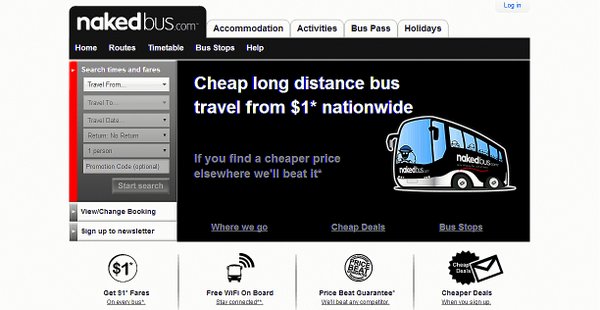 Transportation
Transportation
33. Use Naked Bus for overland transportation
Generally, long-distance buses in NZ are also very expensive. Except for Naked Bus. Ticket prices start at $1! The earlier you book your seats, the cheaper they are. If you book far enough in advance you can grab a seat to just about anywhere in NZ for only $1.
You can also get seats for $10 within a couple weeks of your trip. Within a week or few days of travel, though, prices increase to $20-30. That’s still much cheaper than New Zealand’s other bus services. If you can plan your travels in advance, you can really save a lot of money.
Naked bus is another major reason my travel costs were so low. I booked all my long-distance transportation well in advance with Naked Bus. The 8 bus trips I took averaged about $12 each. In total, I spent only about $100 in three months on transportation.
34. Avoid city public transportation
Public transportation in New Zealand is exceedingly expensive. Within cities, fares are regularly $2-5 OW! Compared to the States, Asia and other regions of the world, this is incredible. So try to avoid using public transportation as much as possible. In cities and towns walk when possible.
35. Catch the ‘Shark Bus’ in Auckland
In Auckland, one free bus service I found is the shark-shaped shuttle bus that takes people to/from Kelly Tarlton’s Sea Life Aquarium out on Tamaki Drive. It’s a great way to reach a beautiful stretch of coastline. Mission Bay Beach and public park is just a 15-20 minute walk along the coast from the Aquarium.
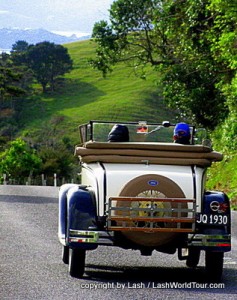 36. Hook up with other travelers who have a car/van/camper
36. Hook up with other travelers who have a car/van/camper
In all honesty, the best way to travel around NZ is by driving your own car, van or camper. Therefore, many visitors buy a vehicle when they arrive then sell it before leaving NZ.
If you can’t afford to buy or rent a car, you might be able to hook up with people who have. They often look for other travelers to join them, help pay for petrol, and enjoy adventures together. Find those opportunities by checking hostel notice boards.
37. Hitch hiking
Many budget travelers still hitch hike around New Zealand. For the most part, I’m told, it’s pretty safe. I haven’t tried it myself, but I have seen many travelers out on the road with their thumbs hitched out.
38. Supermarket cards give petrol discount points
Since I didn’t have my own vehicle in NZ, I haven’t made use of this service. But if you’re traveling by car or camper, be sure to get a supermarket card and use it whenever you buy groceries to get discount points on petrol.
Communications: phone and internet
39. Claim your free NZ sim card
The NZ phone company 2 Degrees offers free pre-paid sim cards to visitors. They are handed out at I-Site Info Centers and 2-Degree stores. You can then top up with a minimum of $20 credit, which is valid for 3-6 months.
If you just text within NZ plus a few quick local calls and/or overseas text messages, the $20 credit can easily last 3 months. That’s a great, low phone tab – under $7 per month.
But DON’T use that credit for overseas calls! It’s incredibly expensive at about $2.50 per minute. Eek
40. Use Super Buzz Global phone card for overseas calls
For international calls, pick up this pre-paid calling card. The calling rate varies for each country, but is incredibly cheap. For instance, calling to the USA and Australia costs 0.03 cents per minute! For 1 ½ hour calls to the US, it cost me about $1.50 per call, so roughly $1 per hour.
The minimum top-up is $10, which will give you about 10 hours of overseas calling time.
You can also use the card for domestic calls, but ironically, it’s considerably more expensive than calling overseas. My domestic calls have worked out to about 10 cents per minute. Still not bad.
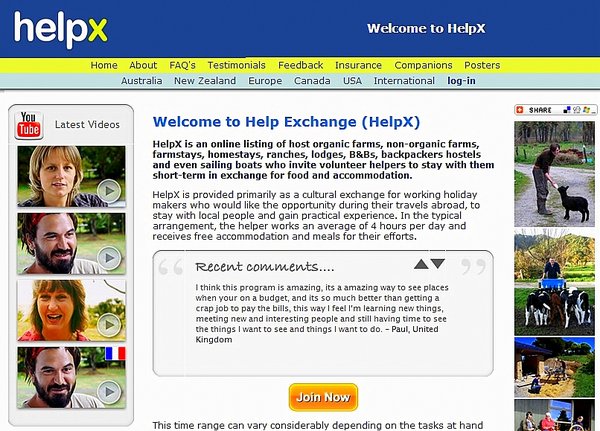 41. HelpX and WWOOF
41. HelpX and WWOOF
If you’re doing volunteer work for your room and board, you’ll probably have access to free wifi at your hosts’ homes. So if you’re carrying a laptop or smart phone, you can get online for free all the time!
Please note, though, that most internet connections in NZ are charged by data usage. That means any online video stuff really chews up people’s credit fast. So hosts will ask you not to use skype or to download movies or upload/download any huge files. IT costs them an arm and a leg.
42. Free internet at cafes
As elsewhere in the world, most cafes offer free wifi with a purchase of food or drink. However, in New Zealand, I’ve noticed that most cafes only give you about 30 minutes to 1 hour of free internet time! After that you many have to purchase something else or pay for more internet time.
Cafes are also good places to do skype and watch YouTube or other videos.
43. Free internet at libraries and info. Centers
Most towns and cities’ libraries and I-Site centers offer free 30-minute internet use on their public computers. Yeah, it’s not much time, but it’s better than nothing. If you’re just trying to stay connected with friends & family, it’s handy.
This is a good place to do skype and watch YouTube or other videos.
44. Use a usb modem and NZ sim with prepaid internet
If you’re carrying a laptop and need to work online regularly and reliably, another option is to use a usb modem that plugs into your laptop. Once you’re in New Zealand, buy an internet sim and pre-paid monthly internet plan with Vodafone or Telecom.
The sim costs $5. Then you can top-up based on how much data you’ll need. For instance, with Vodafone 1 GB costs $20, 1.5 GB costs $30 and so on.
If you’re staying at hostels / backpackers, using your own usb modem and pre-paid internet is much cheaper than using the hostel’s wifi – unless you want to skype, watch videos or the hostel offers free wifi. Usually they charge $4-5 per day. You figure out the math.
Remember that skype, movies and videos will quickly chew up your data and cost a fortune! Better to skype or watch streamed videos at a cafe, library or hostel on their wifi.
Sight-seeing & attractions & activities
45. Art Galleries and some museums are free
All Art Galleries (aka Art Museums) and private art galleries in New Zealand are free. Some ask for a donation, others don’t. New Zealand has excellent, world-class art museums, so they are well worth visiting. I especially enjoyed Auckland Art Gallery and the various art galleries in Wellington.
A few major museums are also free. Most notably is Te Papa Museum in Wellington. Small specialized museums often charge only $2-5 entry fee, which isn’t too bad.
46. Hiking and walking in the great outdoors is free
As I already mentioned, outdoor adventure activities are very expensive in New Zealand. If you can’t afford them but love nature, you can still enjoy the countries many gorgeous natural places by walking, hiking and mountain climbing.
New Zealand is flush with walking paths and trails. You can enjoy beaches, rock coastlines, lakes, rivers, forests, mountains, rolling country hills and botanical gardens. You’ll be able to see many unique native New Zealand trees and birds.
47. See my post: 10 Free Things to do in Auckland
48. Or check out: 10 Free Things to do in Wellington
49. Outdoor hot springs are free
New Zealand sits squarely on the Pacific Rim of Fire. As a result, the country has a lot of geothermal activity, including natural hot springs in many locations. Hot spots at lakes, rivers, mountains and springs out in the wild are free. Go have a toasty soak surrounded by nature!
50. Join free events & festivals
New Zealand has many big annual festivals, mostly focused on arts, music or Maori/Pacific Islanders culture. They are held all over the country at various towns & cities. Some have hefty entry fees, but others are free.
In addition, many towns and communities have their own smaller festivals and events.
Check at each town’s I-Site info center or hostels to find out what’s happening while you’re there.
51. discounts to attractions from hostels and information centers
I-Sites Info Centers and hostels usually offer discounts to the area’s major attractions. For instance, in Rotorua, you can get about 10-15% discount to Rotorua Museum, Te Puia Geothermal/Maori Cultural Center, and other attractions. Even with the discounts, entry fees are usually quite high. But, hey, some discount is better than none.
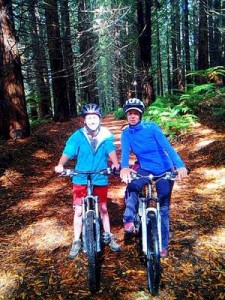 52. Do fun stuff with your HelpX or WWOOF hosts
52. Do fun stuff with your HelpX or WWOOF hosts
If you’re doing volunteer work via HelpX or WWOOF, you might be invited to join day trips, drives to nearby towns or attractions, cycling or hiking, parties, family or friend gatherings and so on. These are things you can’t really plan for ahead of time. It’s just the luck of timing and your hosts’ inclinations…. I was invited on a 4-day vintage car road trip!
53. Travel bloggers – ask for media rate or sponsorship in exchange for a review
If you’re a travel blogger with a large following and good SEO stats on your site, you might get sponsorship and/or media rates at various attractions, museums, hotels and resorts.
It’s best to arrange your media visits ahead of time in writing by email. But you can also try simply asking upon arrival. Hand over your card, explain who you are and ask if they have a media rate.
I’ve received free admission to museums and attractions by doing this. Of course, you’re usually then obliged to write up a candid review of your visit/stay. And that’s a lot of work in itself. So weigh out the cost vs your time and energy.
—————————————————————————————————————————————–
So I hope this whopper list of money-saving tips will help all my fellow budget travelers explore amazing New Zealand and assure everyone that it is quite feasible to visit without breaking the bank. Happy Travels! cheers, Lash
You might also find the following posts useful:
My Costs to Travel Around New Zealand – Month 1
My Costs to Travel Around New Zealand – Month 2
My Strategy to Afford 3 Months’ Travel in NZ
—————————————————————————————————————————————————

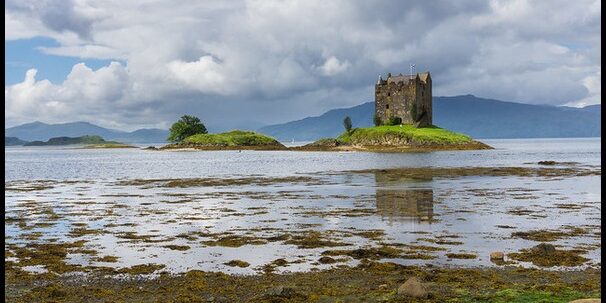
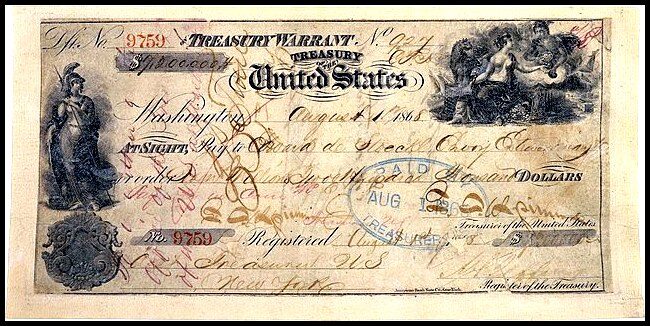

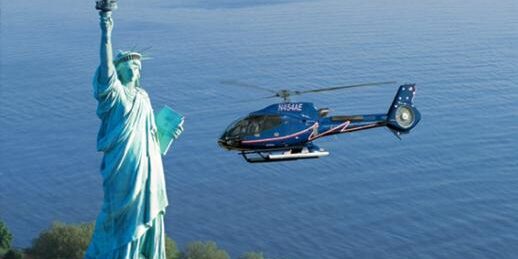
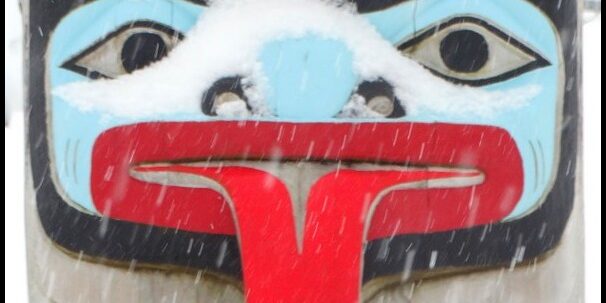
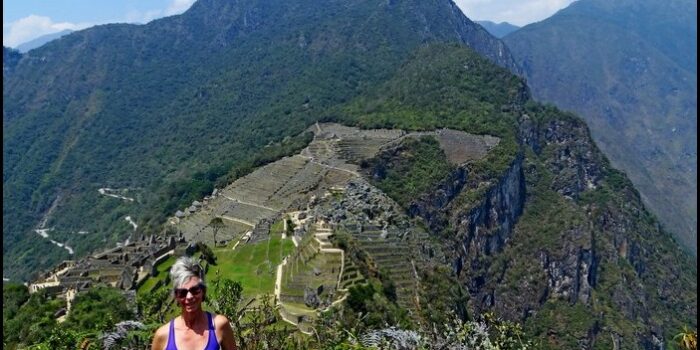
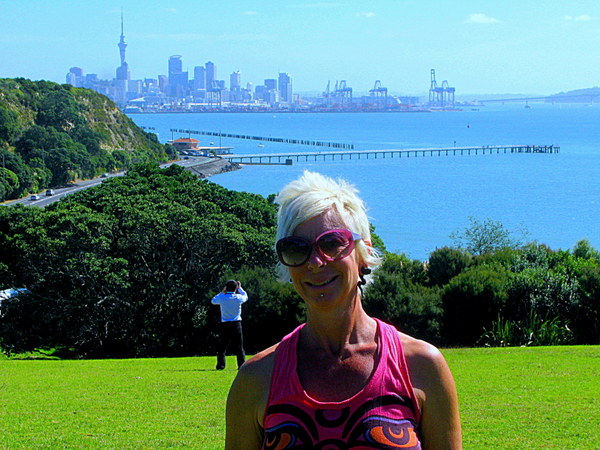
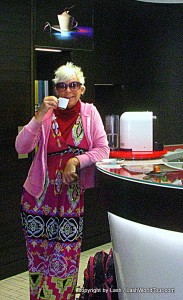
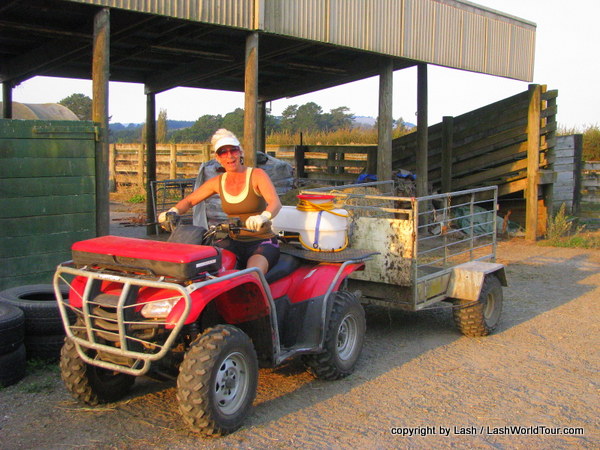
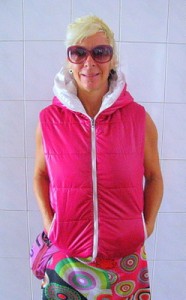
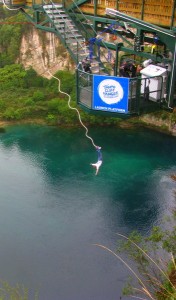
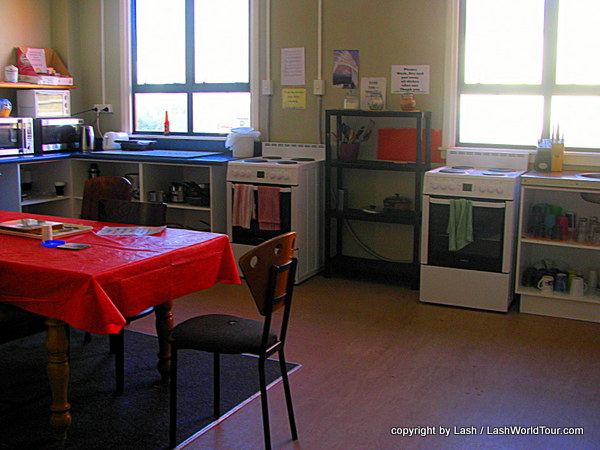
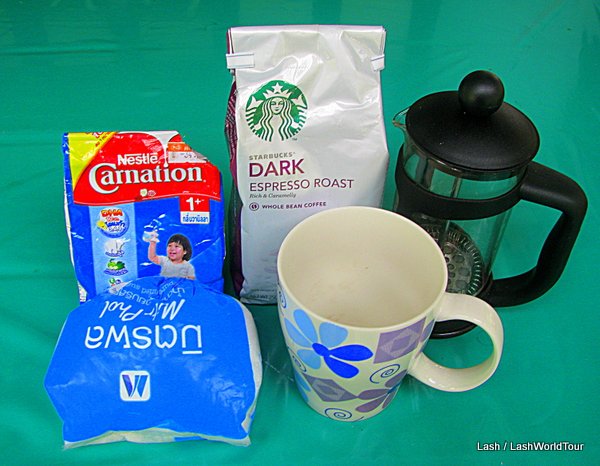
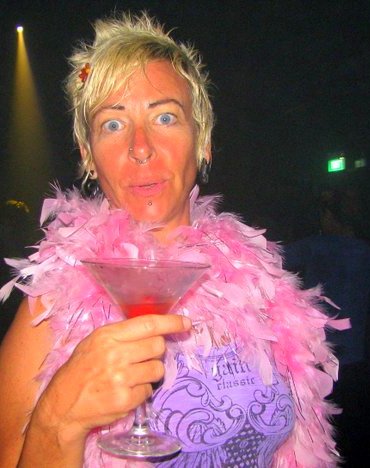
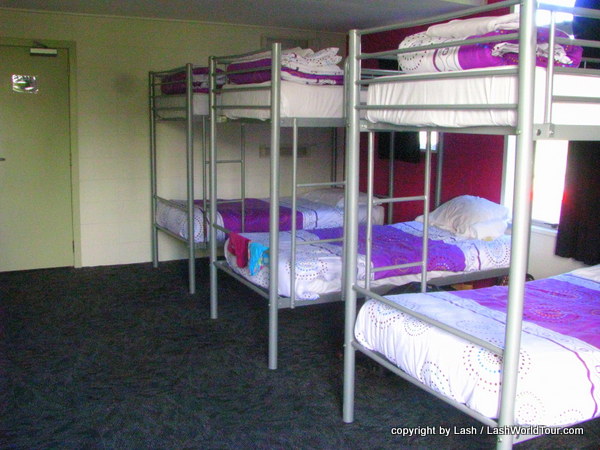
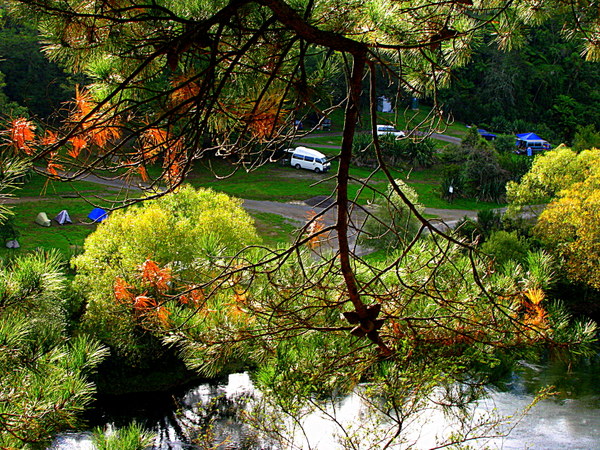
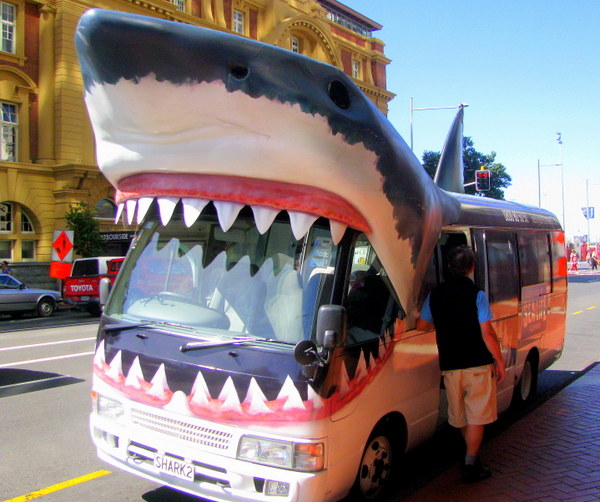
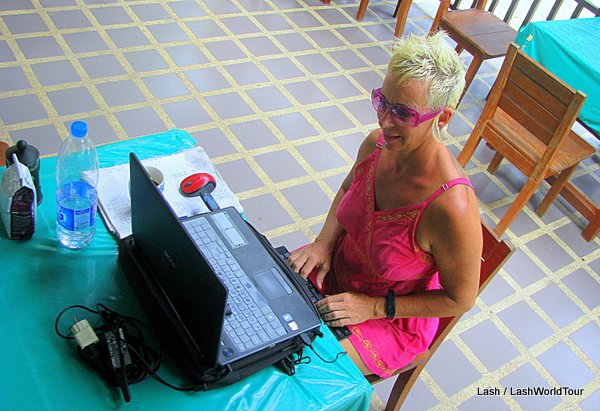
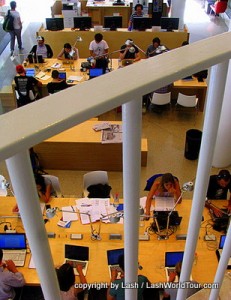
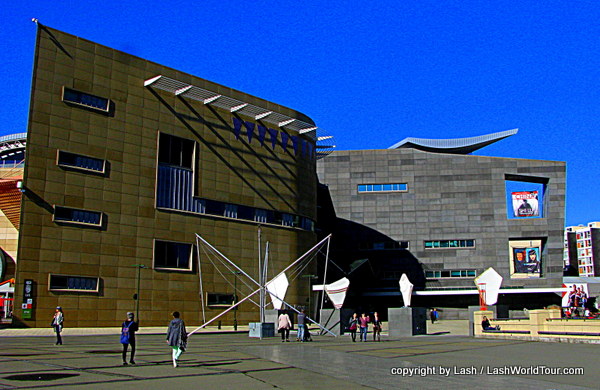
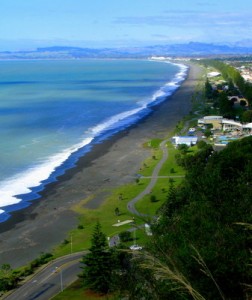
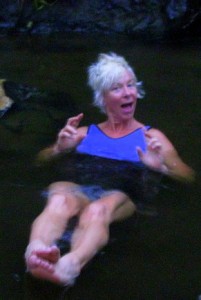

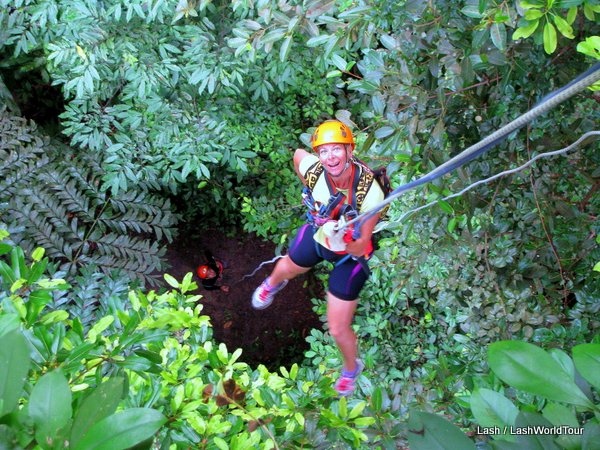
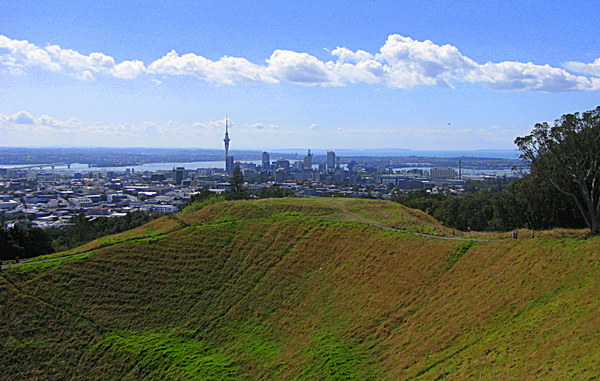
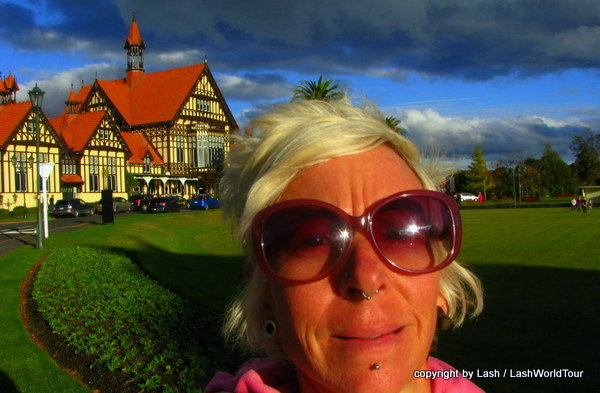
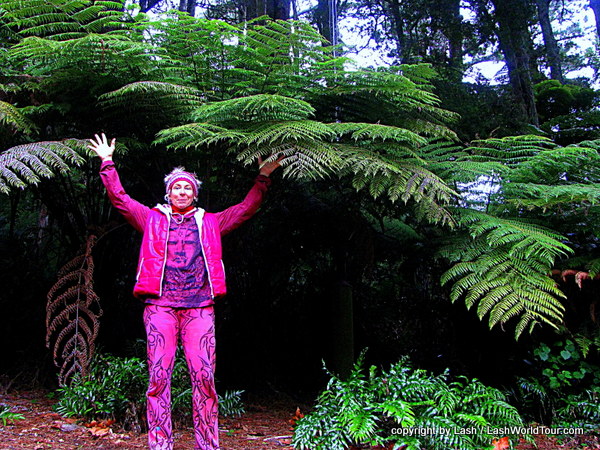

 Hi! I'm Lash, an American nomadic world traveler who's been traveling solo since 1998. I’m passionate about traveling the world nomadically and then sharing it all with you. I hope to inspire you to travel the world, to entertain you with tales from the road, and to help you reach your travel dreams. Welcome!
Hi! I'm Lash, an American nomadic world traveler who's been traveling solo since 1998. I’m passionate about traveling the world nomadically and then sharing it all with you. I hope to inspire you to travel the world, to entertain you with tales from the road, and to help you reach your travel dreams. Welcome! 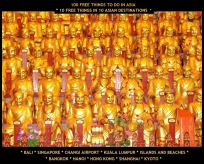


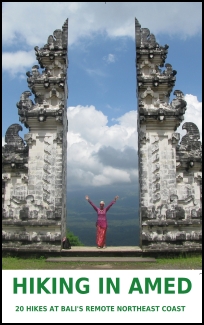
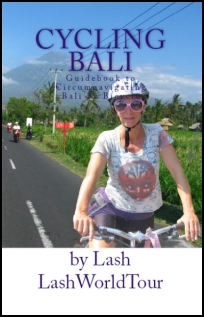
4 pings